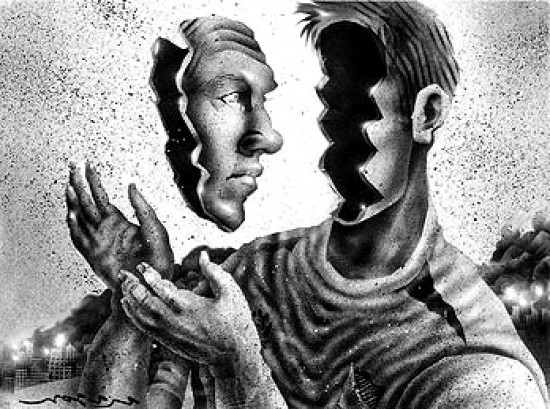THE DANGER OF SELF DECEPTION
By Damilola Ademola
One of the deadliest things to do to oneself is consistently living in self-deception. We are not all perfect beings however, self-honesty is a vital virtue that helps us to do away with every form of self-deception. Shakespeare advises; “To thyself be true”.
Self-deception is a delusional and self-destructive psychological “safe space”. A lot of people feel protected when they shield themselves with their self-serving biases even when the truth is staring at them in the face. While it is true that there are several lenses various individuals use to view issues, our final analysis or judgment on issues, should not be predicated on our blurry self-serving sentiments but a balanced perspective.
Having a balanced perspective requires objective reasoning, oftentimes, self-deceit stems from clouded thinking. Our emotions are capable of blurring our sense of objectivity. Societally, rightness or otherwise of certain behaviors, are based on commonly shared knowledge, nonetheless, an individual with emotionally clouded thinking could sacrifice such shared knowledge or values for his\her prejudice. Individuals with balanced perspectives about life and who love themselves although practice self-compassion, yet, equally have in them a deep-rooted sense of self-honesty.
Signs you may be living in self-deception
Failure to surrender to self-reflection-The capacity to reexamine one’s motives, speech, and inaction says a lot about one’s degree of mindfulness. Individuals who live in self-deceit do not journey on the path of self-reflection. Fleshing out an area of improvement in your behavior patterns is possible when you are capable of self-reflection. It helps your personal development and significantly impacts the sanity of society. Consequently, self-reflection is a bailout psychological framework for self-deception.
Avoidance of individuals who question our self-serving sentiments – Sometimes, individuals trying to remain In this “mental place of refuge”, drive away people who sustain perspectives that don’t resonate with theirs. The fact that you shield your “way of thinking” from being questioned or brought under objective scrutiny suggests that you and self-deceit are in a love-nest.
If you surround yourself with folks who only validate and endorse every ideology you propose regardless of the potential havoc such philosophy can wreck on you and the society, you’re living in self-deception and you don’t cherish yourself much.
Constant rationalization of misdeeds – People who live in self-deceit rationalize their mistakes. They track down a beautiful story to explain away their mistakes. What they do not understand is that- mistakes are commonplace. After all, “To err is human” the understanding of this should help our journey to personal and character development, and not a license for justifying our misdeeds. Nothing can be farther from the truth, people love folks who assume responsibility for their mistakes. Constantly cooking justification for your misdeeds is an indicator of self-deceit.
Resistance to change – Sadly, the most difficult individuals are the ones who resist change. Being too fixated is an index of self-deception. The road to advancement is laced with positive changes, subsequently, embracing change is one of the glaring evidence you are in love with yourself. Not being flexible or accepting fundamental change(s) can be a fast track to regret and failure.
Denial – The final proof of self-deception which constitutes narcissistic behavior is living in self-denial. It is a willful and pretentious way of having a blind spot for the truth. It is faking ignorance. Sometimes, after series of rationalizing one’s blurry way of thinking, it metamorphoses into a psychological problem- Denial. Living in self-denial as a result of a lack of rationality or objective thinking can make an individual appear delusional. Denial makes people push reality under the rug to romance their illusions or biases.
The danger of self-deception is that it makes its victim(s) lose touch with reality, appear to be narcissistic or toxic, and possibly lose valuable relationships and resources. Evolving into a better version of yourself is dependent on your readiness to divorce the traits of self-deceit. A lot of people are starved of a healthy social life because their friends, relatives or neighbors have intentionally distant themselves from them on the account of clinging to their “delusional safe space”- self-deceit. Suffice to say, self-deceit has no gain.




